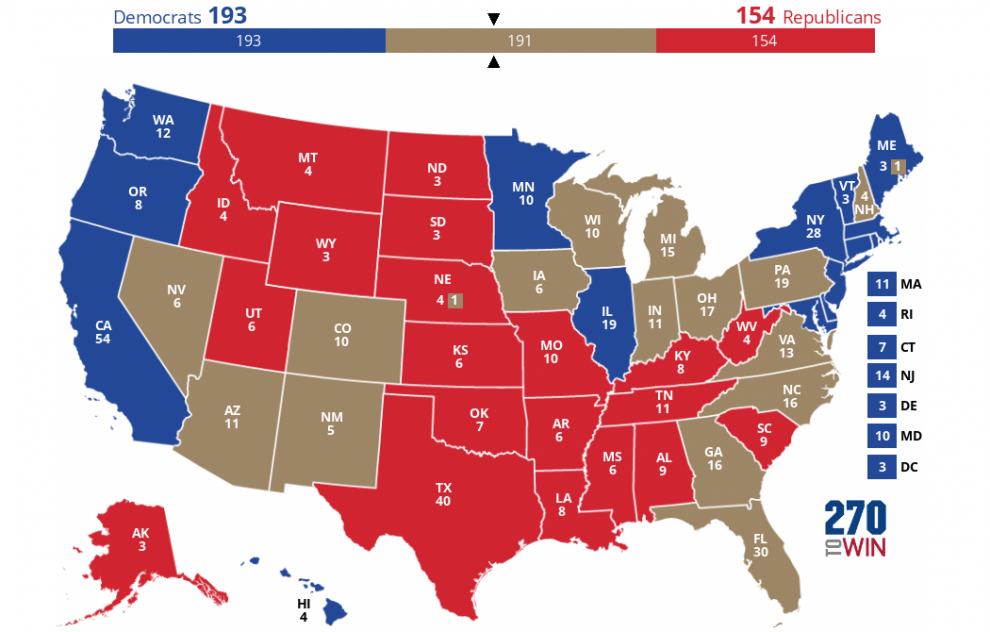New year, new seniors; the college process is starting all over again! Figuring out which school is best fit for you takes many factors into consideration. Do you want to go to a big school or a small school? Which college fits your educational and financial needs? Where in the world do you want to be for the next potential four years of your life? These days, another question has been added to the checklist: Which school would put you in an environment where your political beliefs are shared by others?
Colleges need to be diverse with what they offer and in their own unique culture so students can find the establishment best suited for them. Listed in Accredited Schools Online, are the top ten liberal schools and top ten conservative schools in the country. These colleges vary in size and acceptance rates, as well as location. Compared side by side to the 2020 presidential election map, nine out of the ten most liberal schools are located in blue, Democratic states, while seven out of the ten most conservative schools are located in red, Republican states. As commented in Accredited Schools Online, “Many students choose the college or university they attend based at least in part on their personal politics.”
With the United States having apparently become a politically divided country, many colleges are indeed influenced. Teacher and blogger, Anne Babson, explained one of her own firsthand experiences, “I often tell students in my classroom that I am a committed Christian. In the North, the room of students is usually slightly tense. Arms gently fold across chests. They wonder if I will judge them for not being Christians…or because they live a wild and reckless life…When I say the same words in the South, I hear an audible sigh of relief.” Most southern states are conservative, while northern states are liberal. Within this political bisect, there is also a split in faith and religion. As exemplified through the preceding quote, most northerners are often either not as devoted, follow a different religion, or not religious at all. On the contrary, many southerners are ardent Christians. An example of why this prominent divide matters relates to the timely issue of abortion. In southern states, for example Texas, political leaders are banning a woman from getting an abortion. In contrast, most northern states allow abortion to take place and their laws are not as strict. Depending on a person’s moral and political beliefs, one may feel more comfortable in the north over the south and vice versa. It is reassuring to be around people who have similar morals to you. This influences where students want to apply to college because like everyone else, they want to fit in.
After interviewing Blind Brook senior Lucy Rosenblut about whether she took the color of the states into consideration when applying to colleges, she stated, “For me, my political beliefs are a part of [who I am], and as much as I love debating with people, I do understand a person better when I align with them politically…I also want to go into public service for my future and I feel that in the northeast, which is mostly blue and where I have mainly applied to, I can get the best options out of that. It’s also something I’m more comfortable with, and since college is such a big transition already, some things I wanted to be simple.”
The extent to which a state’s “color” will matter to a prospective college applicant will depend on each individual student. But in these times of extreme political polarization, college bound students may want to consider the political atmosphere in the state where they attend college.







